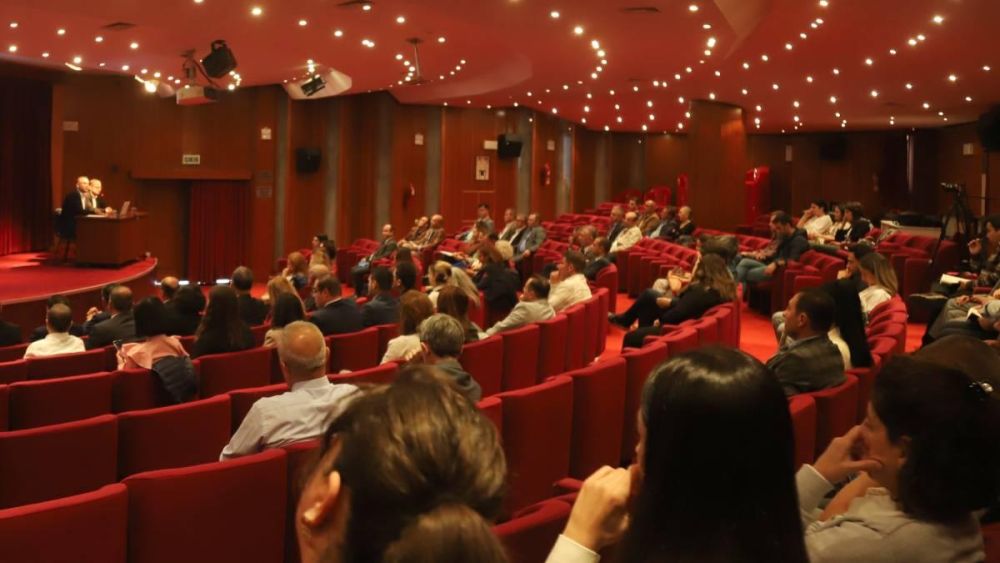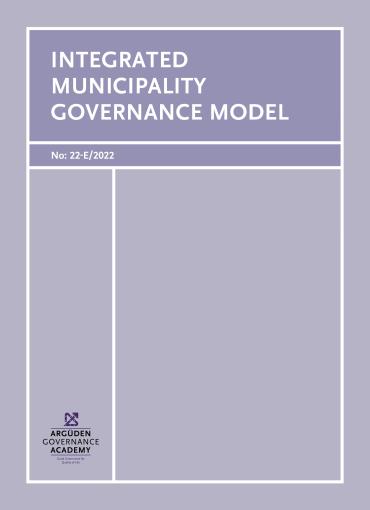The promotion meetings held in Ankara, Eskişehir, and Gebze Municipalities focused on discussing the meaning and significance of a culture of good governance in municipalities. The relationship between the principles of good governance and legislation, as well as corporate mechanisms, was assessed. Fundamental approaches and methods for strengthening good governance in municipalities were shared. Additionally, participants were provided with information about the European Label of Governance Excellence (ELoGE), which reflects the good governance standards of the Council of Europe.
The Integrated Municipal Governance Model© we published in 2022 serves as a guiding framework for municipalities on their journey towards European Governance Excellence.
The dates for the ELoGE introduction meetings series are as follows:
- October 9th, 2023: Gebze Municipality
- October 10th,2023: Eskişehir Metropolitan Municipality
- October 17th,2023: Ankara Metropolitan Municipality
About ELoGE
The ELoGE was developed by the Council of Europe (CoE) for the purpose of raising awareness, standardizing the quality of governance, and promoting good governance at the local government level. The Label is managed by the Centre of Expertise for Good Governance (CEGG) which develops standards and tools under the control of the CoE’s European Committee on Democracy and Governance. Agenda for the requirement that good governance be a necessary feature of all public institutions was first entered with the 2007 Valencia Declaration. Thereafter, the ELoGE was introduced by the CoE as a tool for “Strategy for Innovation and Good Governance at the Local Level”. This strategy also allows the adoption of a good governance approach at regional and national public institutions.
The CEGG undertakes activities for good governance improvement and promotion through policy advice, independent evaluation, tools for capacity building, and establishing an expert network. For supporting the reforms in democratic governance, the CEGG has a learning pool consisting of 25 capacity building and training tools in 5 areas such as democratic participation, effective human resource management, institutional capacity, and public service quality, sound financial management, and regional and cross-border cooperation.
Currently, the ELoGE actively assesses the implementation of good governance principles at the local level in the 23 (out of 46) member countries of the CoE. The experience and lessons generated from these countries are compiled by the CEGG and shared at a platform of good practices which supports inter-municipal learning processes.
The Benefits of the Label
The ELoGE essentially facilitates the standardization of good and democratic governance by local governments. Local governments holding the Label or who are in the process of acquiring it are recognized as those entities taking steps to improve in the field of good governance. These steps contribute to institutional development but also take visible strides in the quality of decision-making, resource use, and service delivery. The resultant gains directly impact the lives of citizens; at the same time, these gains increase the trust and satisfaction of internal stakeholders, namely the employees of local governments. A trust-based social environment increases both the sense of belonging as well as social harmony. Such an environment also helps solve long-term issues such as climate change, services to the aging population, as well as the problems characteristic of disadvantageous groups. In this setting, an improved and more inclusive relationship can emerge between the municipality and its citizens. Furthermore, the identification of the strengths and weaknesses of a governance relying on principles stands to increase institutional resilience and the quality of services to its citizens.
Acquiring the Label and the sustaining process associated with the acquisition institutionalize the standard of the quality of good governance. This process also helps implement legislation and effectively manages operational risks. While minimizing risks, the process enables the production of the most inclusive, fair, and effective public value through improving the quality of decision-making and resource use.
The Centre of Expertise for Good Governance (CEGG) provides an online platform for local governments to share good practices and generate international cooperation. The development of inter-municipal cooperation facilitates peer learning for local governments facing similar problems in urban governance.
The ELoGE functions as a tool for learning and improvement for local governments, a mechanism which is mostly in line with domestic legislation and the United Nations (UN) Sustainable Development Goals (SDGs). Although the Label is in line with this legislation, the Label opens the avenue for the implementation of good governance principles where a regulatory gap exists. By being in accordance with the SDG 16 and 17, the ELoGE allows local governments to contextualize and realize the concept of good governance.















